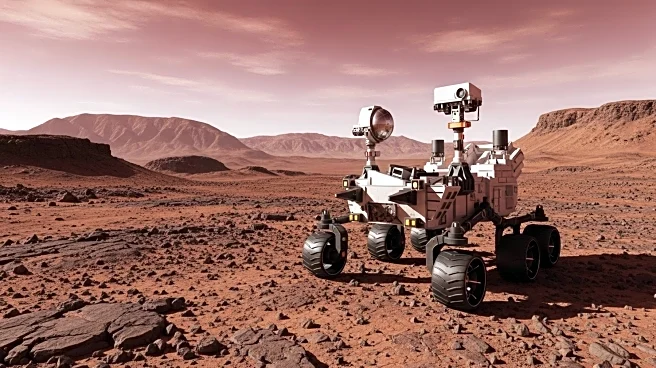What is the story about?
What's Happening?
Recent studies suggest that the landing site for the European Space Agency's Rosalind Franklin rover, Oxia Planum, may have a higher potential for detecting ancient organic material than previously thought. The site features rockfalls and layered clay deposits, which could preserve organic molecules. The rover, equipped with a deep-drilling capability, is set to explore these promising geological features.
Why It's Important?
The potential discovery of organic material at Oxia Planum could provide significant insights into the history of life on Mars. The presence of preserved organic molecules would strengthen the possibility of past life on the planet, offering clues to the conditions that may have supported life beyond Earth. This mission could reshape our understanding of Mars and its habitability.
What's Next?
The Rosalind Franklin rover is scheduled to launch in 2028, following delays due to geopolitical issues. Once operational, the rover will drill into the Martian surface to collect samples, aiming to uncover evidence of ancient life. The mission's findings could influence future Mars exploration strategies and international collaboration in space research.
Beyond the Headlines
The mission underscores the challenges and complexities of international space collaboration, particularly in light of geopolitical tensions. The rover's development has faced setbacks, highlighting the need for stable partnerships in advancing planetary exploration.















